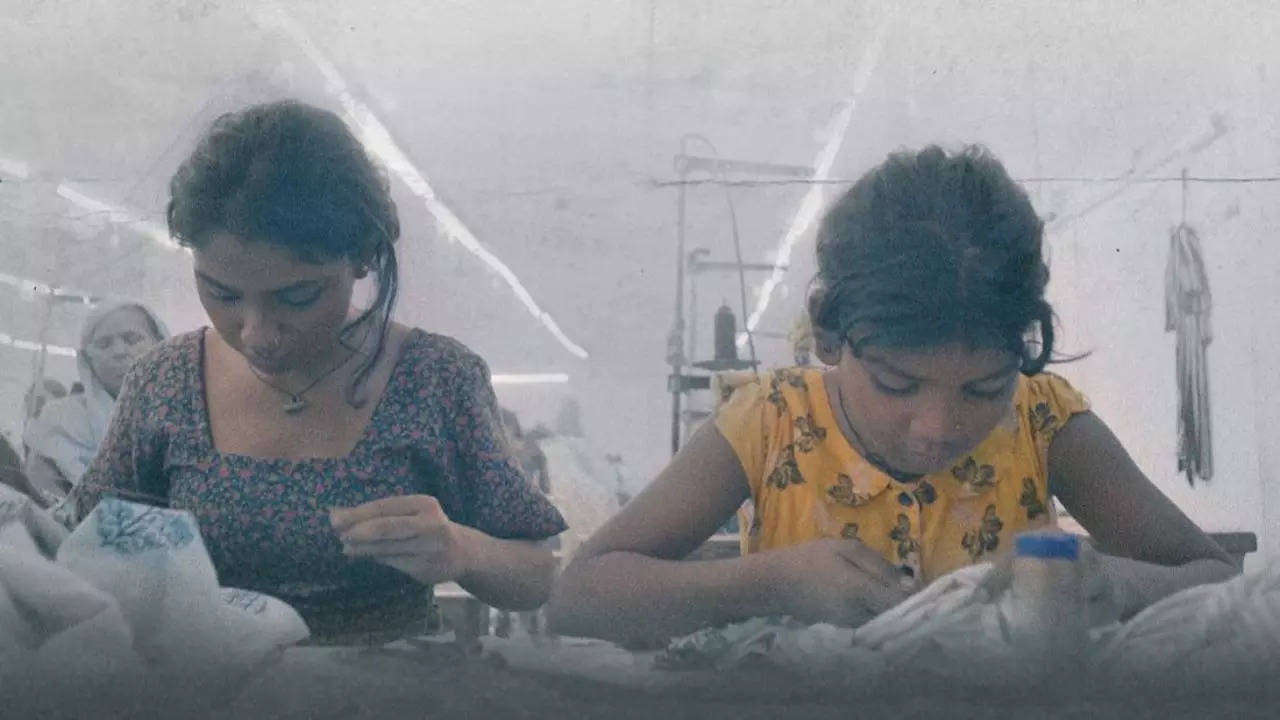
Anuja, a short film that tells the story of a nine-year-old girl forced to work as a child labourer in a cramped garment factory in Delhi, has been shortlisted for Best Live-Action Short Film at the 97th Academy Awards. Written and directed by Adam J. Graves, produced by Suchitra Mattai, and Guneet Monga as the executive producer, the film brings to light a critical issue — the exploitation of child labour in the garment industry.
That T-shirt you bought for a unbelievably low price from a high-street label might very well have involved a child’s labour in its production. While we might like to believe that the glamorous world of fashion is free from such darkness, the reality is starkly different. According to the International Labour Organisation (ILO), “A total of 160 million children – 63 million girls and 97 million boys – are in child labour globally, accounting for almost one in ten of all children worldwide.

Nearly half of all those in child labour – 79 million children in absolute terms – are in hazardous work that directly endangers their health, safety, and moral development.” What Is Child Labour in the Fashion Industry? Child labour involves the exploitation of children through work that robs them of their childhood, denies them education, and exposes them to hazardous conditions. Most of us wouldn’t even realise if a child was involved in producing the cotton harvested with hazardous chemicals or if they worked in sweatshops toiling day and night to create the clothes we wear.
According to the Child Labour Global Estimates, 70% (or 112 million children) of all child labourers work in agriculture. Fast Fashion and Child Labour "Fast fashion" refers to the rapid production of clothing, where speed and quantity take precedence over quality. This creates pressure on suppliers, often driving them to resort to unethical practices, including the exploitation of child labour.
In majority of cases, child labour occurs in raw materials supply chains, making it difficult to detect. Earlier this year, Chinese fast-fashion giant Shein reported two cases of child labour in its supply chain, as revealed in its 2023 Sustainability Report. The report stated: “From Q1 to Q3 2023, our SRS audits uncovered two cases of child labour in our supply chain.
Upon discovering these violations, SHEIN suspended orders from the contract manufacturers and undertook investigations. In accordance with the SRS Policy in place at the time, errant suppliers were given 30 days to remediate their offences.” The relentless demand for shorter turnaround times and lower prices from apparel giants puts suppliers under immense pressure, leading many factories to cut corners and flout labour laws.
How Can You Become a Conscious Customer? It’s crucial to recognise that the clothes you wear might come at a devastating cost. As Giada Nizzoli writes for Project CeCe, “Demand transparency and avoid fashion brands that don’t tell you who made their clothes. Remember: if a garment is so cheap that it sounds too good to be true, it usually hides a dreadful price.
” Support ethical fashion brands. Cheap clothes are not always good news. Choose slow fashion.
While it may be heavy on your pockets, it ensures that garments are not produced through unethical practices, including child labour. Get Latest News Live on Times Now along with Breaking News and Top Headlines from People, Lifestyle and around the world..











